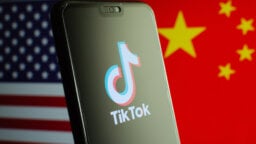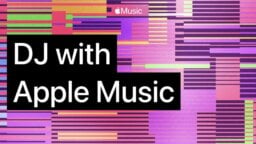Entertainment’s most powerful players are locked in a race – even though they’re running in opposite directions.
In one lane stands the world’s biggest ‘content’ owners; the huge Hollywood studios, the dominant book publishers and the major music labels.
They know that to survive, they need to become much better retailers, and fast. Currently, they’re too far away from their consumers.
Stood facing them, at the other end of the track, are the world’s biggest retailers. People like Amazon CEO Jeff Bezos (pictured).
They don’t need to become better shopkeepers. They’re so close to their consumers, they know exactly what they’re going to buy, when they’re going to buy it – and with which credit card.
What they don’t know how to do is entertain. How to make stuff people love. How to direct, how to edit, how to fine-tune.
How to A&R.
Historically, these two opponents relied on each other to make hay. Their relationship was never without friction, but, on the whole, it found a natural commercial balance.
But now, increasingly, they want to compete. They have the tools to compete. They are competing.
I hate to think who the smart money’s on.
When the news broke that HMV had overtaken Amazon as the UK’s biggest CD retailer last week, you could smell the schadenfreude breaking out across entertainment industry HQs throughout London.
The bullish Goliath of retail had been given a bloody nose. Hurrah!
Meanwhile, over in Seattle…. Amazon wasn’t really fretting about losing slivers of market share regarding little metal discs.
It was plotting the entertainment announcement of 2015; that Amazon Studios, the firm’s TV-show creation division, was ready to park its tanks squarely on Hollywood’s lawn.
“Our goal is to create close to 12 movies a year,” said Amazon Studios boss Roy Price. “Not only will we bring Prime Instant Video customers exciting, unique and exclusive films soon after a movie’s theatrical run, but we hope this programme will also benefit filmmakers, who too often struggle to mount fresh and daring stories that deserve an audience.”
Translation: we’ve noticed that creative types aren’t being permitted to be creative enough by US movie studios.
We’re the world’s biggest retailer. We have 244 million registered customers and we know their bank details backwards. We want to hear your ideas.
Why on earth wouldn’t you want to call us home?
And with that, I’m sure the world’s blockbuster music artists felt their heads turning rather sharply.
“As for Apple? That’s the most wilfully ignored fact in the entire music business: it’s already become a record label”
The promise of artistic freedom from a commercial heavyweight is alluring for any ambitious artist – let alone those that have seen their record company advances fizzle away in the past decade.
Realistically, could Amazon become one of the world’s biggest music labels in the next few years? Probably not. It has no catalogue to hinge a legacy record business on, for one thing.
But it’s certainly well-positioned – should the meagre scraps of recorded music attract its economic fancy – to start issuing new albums from veteran arena-fillers; the sure-fire bets. And that’s not great news for the majors.
Further scary news: Amazon’s battle with book publisher Hachette last year grabbed the headlines, but few people noticed that the retailer has now also become its own manufacturer.
As for Amazon’s old sparring partner Apple?
Well, here’s the most wilfully ignored fact in the entire music business today: Apple has already become a record label.
In amongst all the pointing and megaphoning after its iPhone 6 launch last year, you might not have noticed. But it doesn’t make it any less true.
A band as big as U2 doesn’t really ‘do’ A&R anymore. Rightly or wrongly, they call their own musical shots.
What they need from a label partner is worldwide distribution, PR and big, peel-your-eyelids-back marketing.
Oh, and money. Ideally, a frightening amount of money.
Last year, Apple delivered all of those things for Bono and co in spades.
A $100m marketing campaign for U2’s latest album? Check. A PR campaign that got the entire world talking? Check. An massive upfront cash advance and a glitzy album launch? Check.
Apple even hand-delivered U2’s record direct to 500 million fans.
Yes, Songs Of Innocence was nominally ‘on Universal‘. But Apple completely called the shots. The precedent is now set.
(In the background of the U2 deal, of course, stood the smiling figure of ex-Interscope boss Jimmy Iovine – applauding from what he clearly sees as the right side of the tracks.)
So how can the major labels fight back before giant global retailers gobble up their lunch?
First of all, by becoming retailers themselves; by taking on Amazon and Apple at their own game.
Record companies haven’t directly owned the relationship with their fans for aeons. Now is the time for them to take a leaf our of Live Nation‘s book: when it swooped for Ticketmaster in 2010, LN suddenly removed any barrier between itself and its repeat customers.
To a degree, labels are already moving in the right direction.
Universal’s experiment with The Kleek – a UMG-owned streaming service for Africa with Samsung – is exactly the kind of bold initiative that will rock any plans Jeff Bezos may have to become the new Walter Yetnikoff.
And although it might stimulate concerns over potential IPO windfalls, the majors buying chunks of Spotify represents the same principle: an attempt by rights-holders to get a handle on the space between themselves and their customers.
A high-up at one major recently even told me that – buoyed by the relative stability of CD and the vinyl resurgence – he’s starting to seriously consider opening physical music shops in the next two years.
“Now is the time for labels to take a leaf out of live nation’s book: when it swooped for ticketmaster in 2010, it removed any barrier between itself and its customers”
But the key, as always, to labels seeing off any wealthy new threat to their business will be the lasting quality of their product.
That ol’ devil, A&R.
Amazon’s annual turnover is $137 billion. Apple’s is $644bn.
Whether you’re Universal, Warner or Sony, compared to that, you’re an indie. Time to start thinking like one.
That means signing less play-it-safe, in-and-out chart music, and more striving to make a memorable cultural impact.
It means that if Amazon or Apple say they’re ready to create “fresh and daring” music that “deserves an audience”, labels will just have to show them how it’s done.
Achieve that, and there’s not a whole lot to be scared of.
This week, just over month after Amazon launched its own nappy brand, it removed the product from sale.
Following numerous complaints from mothers over the quality of its Pampers rival, Amazon has decided to try and fix its diapers.
It now admits that they require some hefty “design improvements”.
An important lesson for the industrially ambitious Jeff Bezos, there: just because you fancy diving into a specialist market, it doesn’t mean your gameplan won’t come apart at the seams.Music Business Worldwide





